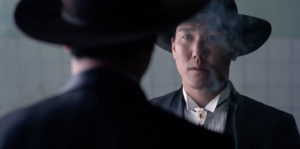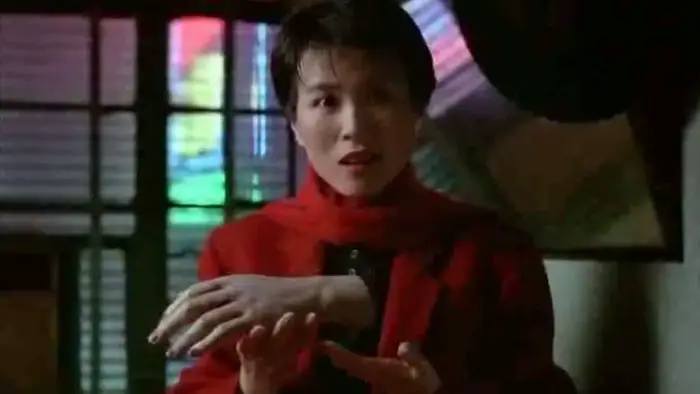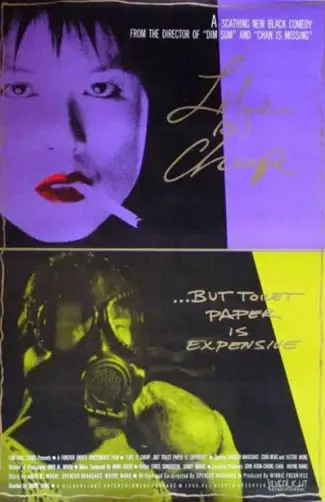
NOW IN THEATERS! A gritty X-rated arthouse film from 1989 gets shined up like a big red apple with director/co-writer Wayne Wang’s director’s cut of Life is Cheap… But Toilet Paper is Expensive. Co-directed by star Spencer Nakasako, the movie uses documentary footage of Hong Kong street culture intercut with a gangster story written by Wang, Nakasako, and Amir Mokri. His bosses in New York send Yat Boon Jai (Nakasako) to Hong Kong with a suitcase handcuffed to his wrist. He arrives rocking cowboy gear as he fancies himself out in the last frontier of the Wild East. He is supposed to deliver the suitcase to the big boss of the Hong Kong organization (Wei Lo).
Instead of the boss, he meets a henchman (Chung Lam) who has just been chewed out over turning in his grandmother back when he was a red guard under Mao. When Yat refuses to hand over the suitcase to anyone but the boss himself, he is wished luck hunting him down. On his search, Yat runs into a wild variety of characters, like the flamboyant Uncle Cheng (Kwan-Min Cheng), a blind man (Victor Wong) selling fake Rolodex watches, and a professional duck killer (Wan Kin Cheng). It is this last eccentric personality who provides the eponymous quote. When Yat tracks down the boss, he is highly distracted by the engagement of his daughter (Bonnie Ngai) and puts off collecting the briefcase. In the meantime, Yat encounters the mysterious Money (Cora Miao), the boss’ girlfriend. She shares some secret information that could put Yat in danger as misfortune starts closing in.

“…shares some secret information that could put Yat in danger…”
While I didn’t see Life is Cheap… But Toilet Paper is Expensive during its original North American run in 1990, I clearly remember the controversy surrounding the rating. That was the year the X-rating reached its breaking point with a phalanx of arthouse features like The Cook, the Thief, His Wife, and Her Lover and Tie Me Up, Tie Me Down that were apparently too hard for an R rating but were not pornography. The need to distinguish between hard art and hot smut resulted in the transformation of the rating from X to NC-17 later that year with Henry & June. But this comedic crime thriller was ahead of its time as it rated itself A for Adult, bringing attention to the needed rating update.
So what the devil did Wang and Nakasako drop in that pushed it into X in the first place? They dropped some mighty good s**t. You cannot take a real s**t on camera and get an R… you just can’t. But it is very important to the symbolism the filmmakers are working with about economic structures’ effect on humanity, so the s**t stays in. Ironically, it is the animal abuse imagery that is the most controversial element so many decades later. Scenes of ducks being slaughtered and dogs on treadmills are sickening but once again symbolically potent and necessary.

"…come for the shock, but you will stay for the societal reflections..."



[…] Source link […]